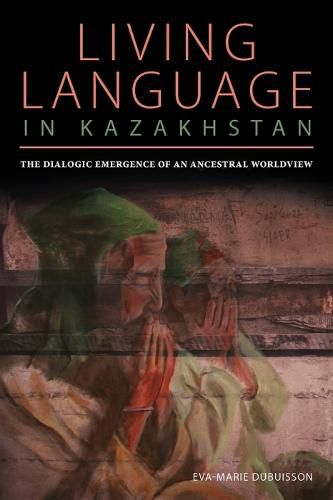Readings Newsletter
Become a Readings Member to make your shopping experience even easier.
Sign in or sign up for free!
You’re not far away from qualifying for FREE standard shipping within Australia
You’ve qualified for FREE standard shipping within Australia
The cart is loading…






Eva-Marie Dubuisson provides a fascinating anthropological inquiry into the deeply ingrained presence of ancestors within the cultural, political, and spiritual discourse of Kazakhs. In a climate of authoritarianism and economic uncertainty, many people in this region turn to their forebearers for care, guidance, and advice, invoking them on a daily basis. This living language creates a powerful link to the past and a stable foundation for the present. Through Dubuisson’s participatory, observational, and lived experience among Kazakhs, we witness firsthand the public performances and private rituals that show how memory and identity are sustained through an oral tradition of invoking ancestors. This ancestral dialogue sustains a unifying worldview by mediating questions of faith and morality, providing role models, and offering a mechanism for socio-political critique, change, and meaning-making. Looking beyond studies of Islam or heritage alone, Dubuisson provides fresh insights into understanding the Kazakh worldview that will serve students, researchers, GMOs, and policymakers in the region.
$9.00 standard shipping within Australia
FREE standard shipping within Australia for orders over $100.00
Express & International shipping calculated at checkout
Eva-Marie Dubuisson provides a fascinating anthropological inquiry into the deeply ingrained presence of ancestors within the cultural, political, and spiritual discourse of Kazakhs. In a climate of authoritarianism and economic uncertainty, many people in this region turn to their forebearers for care, guidance, and advice, invoking them on a daily basis. This living language creates a powerful link to the past and a stable foundation for the present. Through Dubuisson’s participatory, observational, and lived experience among Kazakhs, we witness firsthand the public performances and private rituals that show how memory and identity are sustained through an oral tradition of invoking ancestors. This ancestral dialogue sustains a unifying worldview by mediating questions of faith and morality, providing role models, and offering a mechanism for socio-political critique, change, and meaning-making. Looking beyond studies of Islam or heritage alone, Dubuisson provides fresh insights into understanding the Kazakh worldview that will serve students, researchers, GMOs, and policymakers in the region.